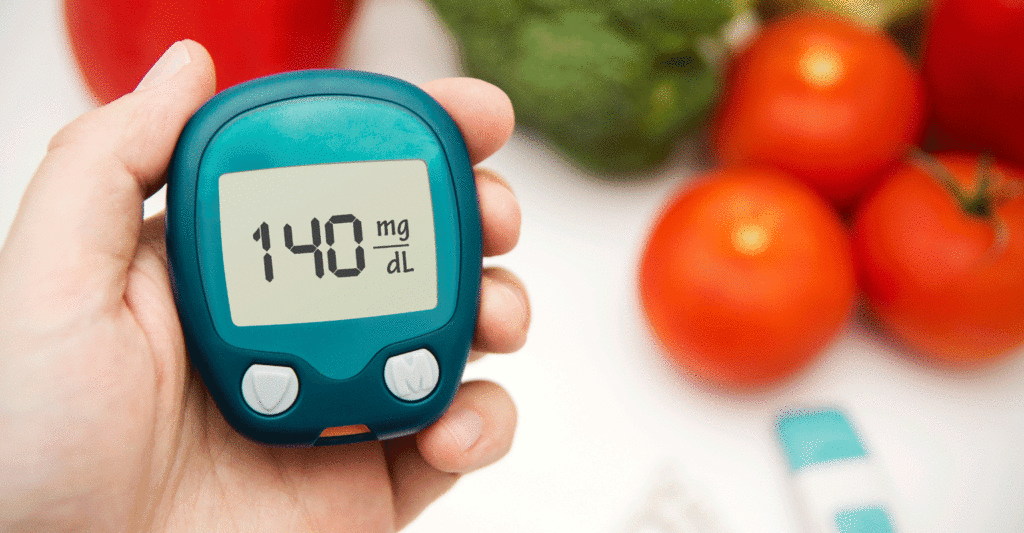National Diabetes Month time to learn more about the disease
Texas A&M AgriLife offers information, programs on diabetes education, management
National Diabetes Month is an opportunity to raise awareness of this disease and its risk factors, as well as promote healthful living behaviors that can reduce the risk of developing Type 2 diabetes, said Texas A&M AgriLife experts
Diabetes is a pervasive and costly disease. While it is not curable, it is manageable.
“Knowing whether or not you are at risk for diabetes or have prediabetes is important, and nutritional and lifestyle changes can help you avoid developing Type 2 diabetes,” said Danielle Krueger, Texas A&M AgriLife Extension Service program specialist and registered dietitian, Bryan-College Station. “Some symptoms of prediabetes include increased thirst, more frequent urination, fatigue, blurry vision and increased body weight, especially around the waist.”
About 14% of Texans have diabetes. Among these, about one-fourth are undiagnosed, which greatly increases their health risks. Another almost 7 million Texans have prediabetes, with blood glucose levels above the normal range but not yet high enough to be diagnosed as diabetes. The annual cost of diabetes and prediabetes to the state is estimated at almost $24 billion.
“Some ways people can better inform themselves about diabetes are learning about risk for diabetes and how new medications are making it easier to control blood sugar and insulin levels,” Krueger said. “They can also learn more about how a healthy diet and physical activity can help control diabetes.”
AgriLife Extension programs to address diabetes
“Making Texans and others aware of diabetes and what can be done to avoid or manage it is an important aspect of community health education,” said Rusty Hohlt, director of Healthy Texas for AgriLife Extension. “Making good food choices and developing healthful eating habits are important in the fight against diabetes.”

AgriLife Extension offers several other opportunities for people to learn the skills to more effectively manage the disease — or reduce the risk of developing it by means of better nutrition, exercise and blood-glucose monitoring. These include:
- Do Well, Be Well with Diabetes is a self-paced course with a one-time fee, which dives deeper into understanding diabetes, how food affects blood glucose, how to make healthful choices, the basics of medicine, incorporating foods into a healthy eating pattern and more.
- Cooking Well with Diabetes engages the community with hands-on food preparation to reinforce the practical nutritional applications of the self-care lesson series Do Well, Be Well with Diabetes.
Do Well, Be Well with Diabetes and Cooking Well with Diabetes are available online at any time, so individuals may participate at their own pace at a time that is convenient for them. These courses and their costs can be found in the Family and Health section of the AgriLife Online Courses website.
Additional resources
Some additional AgriLife Extension resources on diabetes control and management include:
— Sí, Yo Puedo Controlar Mí Diabetes! provides culturally relevant Type 2 diabetes self-management education for Hispanics/Latinos. The program seeks to educate, empower and equip participants to better control their diabetes through a real-world, practical approach. The program is also available in English.
— Wisdom, Power, Control provides evidence-based, culturally relevant Type 2 diabetes self-management education relevant to African Americans. Topics include diabetes self-care skills, improving eating habits and maintaining good nutrition, increasing physical activity, preventing diabetes complications, and improving quality of life while living with Type 2 diabetes.
Diabetes education-related programs are offered periodically by AgriLife Extension offices throughout the state. To see if any are being offered in a specific county, contact the agency office in that county.
Small steps, big difference
“Nutrition and the food choices we make are important for diabetes management,” said David Leal, AgriLife Extension program specialist with Healthy Texas, Beeville. “Each meal we eat is an opportunity to at least partially manage glucose and reduce the risk of complications that can result, such as heart disease.”
Leal also noted that this year’s theme for National Diabetes Month is “Small Steps, Big Difference: Preventing diabetes is within your reach,” which emphasizes making smaller, incremental changes to help prevent diabetes.
“By focusing on simple tasks like walking or adding some fresh fruit as one of your snacks, you can celebrate those small steps toward preventing or controlling diabetes,” he said.
Leal said some of the small steps that can make a big difference include:
— Increasing physical activity.
“Take a walk at lunch or whenever you have the energy and could use a brain break,” he said. “Start with 10 minutes and add more time as you are able. The extra muscle movement and circulation helps improve your mood and reduce your stress.”
— Balancing your plate.
“Focus on a food habit you need to improve,” he said. “Replacing high-calorie drinks with water or adding vegetables and fruits to your diet can really help improve your health over time.”
— Setting small behavior-change goals.
“Your goals should involve a change in your regular routine,” Leal said. “Walking three to five times per week, packing a water bottle for when you’re thirsty, and eating a little healthier every day are great ways to begin to be healthier.”
— Seeking help from others.
“Support and encouragement can make a big difference when making changes to your life,” he said. “Find a walking buddy or ask for encouragement from family or friends. Building a support network can make your healthier lifestyle a little easier to maintain and enjoy.
“Texas A&M AgriLife has a number of resources to help increase diabetes awareness as well as show those with diabetes or family members how they can have a better quality of life by making some basic lifestyle improvements,” Krueger said. “We hope Texans and others will use National Diabetes Month to learn about diabetes and how to manage it, especially if they have a family history of diabetes or think they might have prediabetes.”




